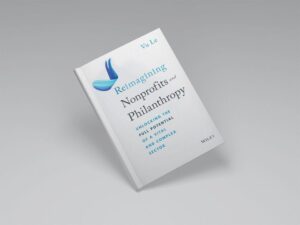
December 31, 2018; New York Times
Difficult, persistent social problems are not in short supply. When existing responses fall short, we hunger for new, more effective approaches. For nonprofits, the challenge is often to find resources to support innovation and, when successful, bring it to scale so the benefits can be widely shared.
But the recent struggles of the Memorial Sloan Kettering Cancer Center (MSKCC) illustrate that as rewards increase, so do ethical challenges. Protecting a nonprofit’s autonomy is a challenge. While the costs and potential profits of medical research are larger than those facing many nonprofits, the need for ethical clarity is the same.
Medical research is expensive. New treatments may improve the lives of millions and, if developed commercially, become very profitable. For MSKCC, pursuing potential gains while remaining true to its mission has been challenging. Brad Loncar, founder of an investment fund that invests in medical research, recently told the New York Times that “Closer ties between nonprofit research centers like MSKCC and corporations are being fueled by a rush of potentially breakthrough cancer treatments. Venture capital firms and drug companies have looked to cash in on the scientific discoveries. Money follows success.”
Increasingly, MSKCC has become more comfortable with forming close and intertwined relationships with for-profit organizations, even at the potential cost of compromising its autonomy. Dr. Lisa DeAngelis, MSKCC’s medical director, told the Times that while “someone might think that business relationships are problematic…I’m telling you, as someone who works with patients, and I’ve worked with patients throughout my entire career here, that working with industry has helped me save lives.”
Researchers have been allowed to form close relationships with commercial partners, even becoming co-owners of new businesses that profit off of innovations created by the nonprofit cancer center: “In recent years, the hospital, like its competitors, has struck increasingly sophisticated deals to commercialize its discoveries, in some cases receiving equity stakes in start-ups rather than simply collecting royalties.”
For some, the benefits of these ties are outweighed by the risks:
Sign up for our free newsletters
Subscribe to NPQ's newsletters to have our top stories delivered directly to your inbox.
By signing up, you agree to our privacy policy and terms of use, and to receive messages from NPQ and our partners.
Ethicists and health experts say having leaders and researchers at nonprofit hospitals sit on corporate boards is especially problematic. When they serve on the board of a publicly traded company, they have a legal duty to the corporation and its shareholders, which can clash with their duty to their patients and primary employers. Those who sit on boards are often paid hundreds of thousands of dollars a year…
The whole reason for being in the cancer care business is that you’re trying to help people in need, and that’s not at all the company’s main purpose. It’s to generate profits on their products.
In a letter to its medical staff, MSKCC’s leadership saw only an issue of transparency.
There is clearly a field-wide debate occurring right now over transparency and the opaque rules that guide disclosure in medical journals. Researchers, journals, and nonprofit research institutions are engaged in serious discussions on solving this problem…
We have been conducting a full review of disclosure policies to ensure that we are advancing cancer research in the most ethical and transparent way possible…
We want to be abundantly clear that [MSKCC] stands firm behind our colleagues and our commitment to work with industry and to responsibly develop new scientific discoveries for the benefit of cancer patients. Our faculty are committed to personal integrity and professional ethics, with the singular focus of our mission. Central to that mission is our focus on taking basic science and developing it into lifesaving therapeutics to fight cancer—an accomplishment that can rarely happen in academia alone.
The growing role of for-profit organizations in areas previously not seen as of commercial interest makes MSKCC’s experience of wider interest for the field. As funders see profit potential in the work of nonprofits, how will leaders protect their autonomy, their mission, and the interests of those they serve? Hopefully, these questions can be asked and answered before new relationships are formed and too much damage is done.—Martin Levine












